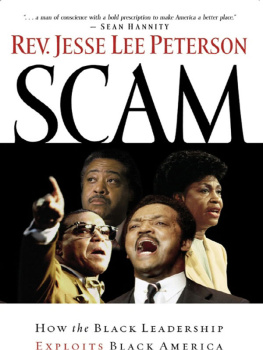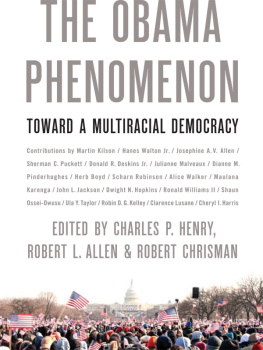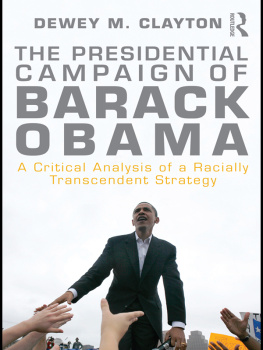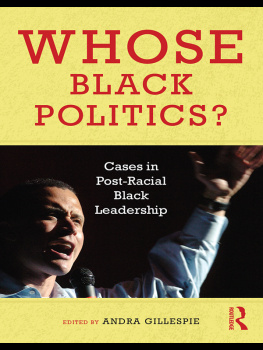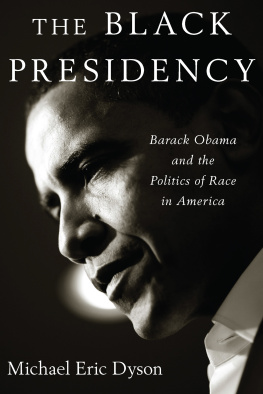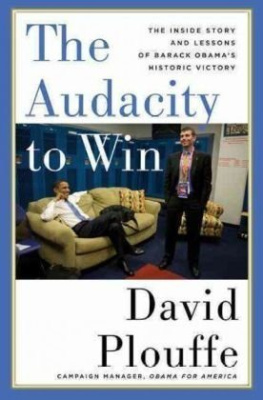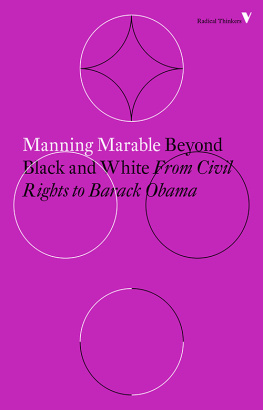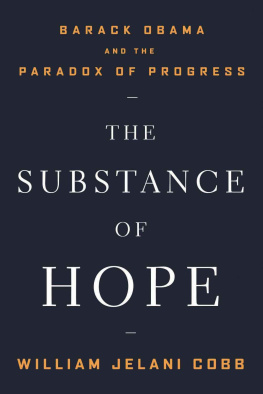Praise for Yes We Did?
In this thoughtful and thought-provoking study, Cynthia Fleming deftly weaves interviews and her own deep understanding of history to provide context for how black leadership has developed and shaped American life. A fascinating read.
Guy and Candie Carawan, editors of Sing for Freedom:
The Story of the Civil Rights Movements through its Songs
This study of African American leadership is unlike others of this genre. Grounded in extensive interviews with a broad range of male and female leaders on the national and local levels in a variety of venues, the author provides a needed context for understanding the emergence of Barack Obama. How President Obamas historic election relates to recent developments in African American leadership is exhaustively and imaginatively explored in this exciting new study.
Dennis C. Dickerson, author of Militant Mediator:
Whitney M. Young Jr.
Fills an important void in post-1960s analyses... links us to the legacy of the King era but challenges us to confront the contradictions of what has transpired, and what has not transpired, since Kings death.
Barbara Ransby, author of Ella Baker and the Black Freedom Movement: A Radical Democratic Vision
Yes We Did?
YES WE DID?
FROM
Kings Dream
TO
Obamas Promise
CYNTHIA GRIGGS FLEMING
THE UNIVERSITY PRESS OF KENTUCKY
Copyright 2009 by The University Press of Kentucky
Scholarly publisher for the Commonwealth, serving Bellarmine University, Berea College, Centre College of Kentucky, Eastern Kentucky University, The Filson Historical Society, Georgetown College, Kentucky Historical Society, Kentucky State University, Morehead State University, Murray State University, Northern Kentucky University, Transylvania University, University of Kentucky, University of Louisville, and Western Kentucky University. All rights reserved.
Editorial and Sales Offices: The University Press of Kentucky
663 South Limestone Street, Lexington, Kentucky 40508-4008
www.kentuckypress.com
13 12 11 10 09 5 4 3 2 1
Library of Congress Cataloging-in-Publication Data
Fleming, Cynthia Griggs, 1949
Yes we did! : from Kings dream to Obamas promise / Cynthia G. Fleming.
p. cm.
Includes bibliographical references and index.
ISBN 978-0-8131-2560-2 (hardcover : alk. paper)
1. African American leadership. 2. African AmericansPolitics and
government. 3. Civil rights movementsUnited States. 4. United StatesPolitics and government1945-1989. 5. United StatesPolitics and government1989
I. Title.
E185.615.F56 2009
323.11960732dc22 2009022456
This book is printed on acid-free recycled paper meeting the requirements of the American National Standard for Permanence in Paper for Printed Library Materials.

Manufactured in the United States of America.

To three African American leaders who remained committed to the struggle for equality all their lives, who were kind enough to share their wisdom with me for this book, and who have all recently passed away:
Attorney J. L. Chestnut Jr.
Dr. John Hope Franklin
Rev. Abraham Woods
Contents
Participants
JAMES ARMSTRONG, an Alabama native and a longtime Birmingham resident, participated in the historic Selma-to-Montgomery march, and for most of the march, he was the designated bearer of the American flag.
FRANK BALLANCE, a North Carolina native, was elected to the House of Representatives from North Carolinas First District.
JAMES BEVEL, a native Mississippian, was a member of the Nashville student movement, the Student Nonviolent Coordinating Committee, and the Southern Christian Leadership Conference.
TIMUEL BLACK, a native Mississippian and a longtime resident of Chicago, is a community activist and a member of the Congress of Racial Equality.
UNITA BLACKWELL, a native Mississippian, was a member of the Student Nonviolent Coordinating Committee during the civil rights movement. Blackwell was also a member of the Mississippi Freedom Democratic Party during Mississippi Freedom Summer in 1964 and was the first black mayor of Mayersville, Mississippi.
JOANNE BLAND, a native of Selma, Alabama, is a community activist and the cofounder of the Voting Rights Museum in Selma. She was on the Edmund Pettus Bridge on March 7, 1965 (Bloody Sunday), when voting rights demonstrators were beaten and teargassed.
JULIAN BOND, a native of Atlanta, Georgia, was the communications director for the Student Nonviolent Coordinating Committee during the civil rights movement. He was also one of the youngest people ever elected to the Georgia state legislature.
ROBERT BOOKER, a native of Knoxville, Tennessee, and a community activist, was a leader of the Knoxville sit-in movement and was the first black candidate from East Tennessee to be elected to the Tennessee State Senate since Reconstruction.
CAROL MOSELEY BRAUN, a native of Chicago, Illinois, has been a key participant in Chicago politics for some time, and she is the only African American woman in American history to be elected to the U.S. Senate.
KWAME BROWN, a native of Washington, D.C., and the son of a Student Nonviolent Coordinating Committee member, serves on the District of Columbia City Council.
J. L. CHESTNUT, a native of Selma, Alabama, was a civil rights lawyer who did a great deal of the legal work for Alabama civil rights activists during the civil rights movement.
DOROTHY COTTON, a native of South Carolina, worked in the civil rights movement in Richmond, Virginia, with Southern Christian Leadership Conference insider Wyatt T. Walker. Later, Cotton served as the SCLC director of education.
COURTLAND COX, a native of New York and a longtime resident of Washington, D.C., was a member of the Student Nonviolent Coordinating Committees executive staff during the civil rights movement. Later, he occupied several positions in the District of Columbia city government.
GEORGE CURRY, a native of Tuscaloosa, Alabama, is a well-known black journalist. He is a former editor of Emerge magazine and was the first black reporter on the staff of Sports Illustrated.
ARTUR DAVIS, a native of Montgomery, Alabama, is a congressman representing Alabamas Seventh Congressional District.
JOHNNY FORD, a native of Tuskegee, Alabama, became the first black mayor of Tuskegee. He was also elected to the Alabama State Legislature. He later changed his party affiliation from the Democratic to the Republican Party.
JOHN HOPE FRANKLIN, a native of Tulsa, Oklahoma, became the first black professor to head an all-white college history department. He was a prolific writer and one of the foremost experts on the history of African Americans.
LAWRENCE GUYOT, a native of Mississippi and a longtime resident of Washington, D.C., was a member of the Student Nonviolent Coordinating Committee during the civil rights movement. He served as the head of the Mississippi Freedom Democratic Party during Mississippi Freedom Summer in 1964.


